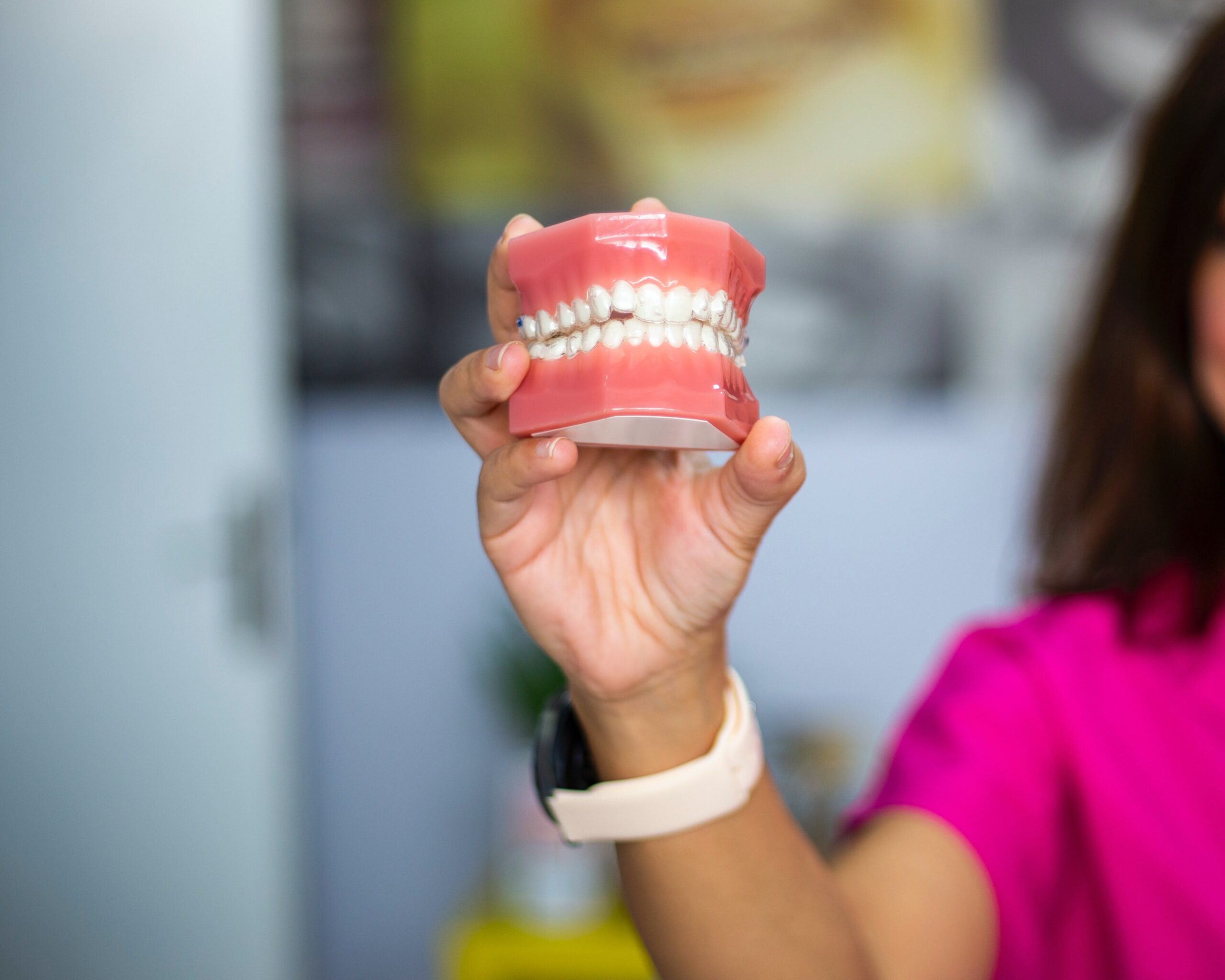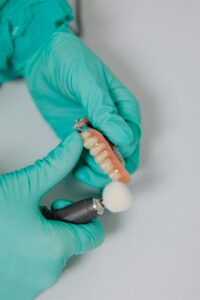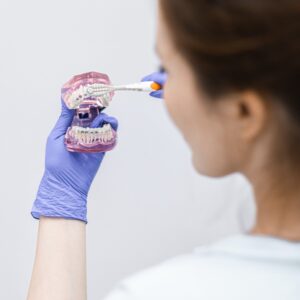
Understanding Dentures: What Are They?
Dentures are removable appliances designed to replace missing teeth and surrounding tissues. They are an effective solution for restoring function and appearance when teeth loss has occurred.
Why Dentures? Their Importance and Impact on Oral Health
Dentures play an indispensable role in oral health as they aid in improved chewing, clearer speech, and a better facial structure. Without them, prolonged tooth absence can lead to misalignment of remaining teeth, facial muscle sagging, and other health issues.
Dentures vs Other Dental Solutions: An Overview
While bridges and implants are solutions for tooth loss, dentures are often chosen for being more affordable and less invasive. They also offer the flexibility to be removed and cleaned easily.
Compassing Basic Definition: What Are Complete Dentures?
Complete dentures, also known as full dentures, are tailor-made dental prosthetics designed for individuals who have lost all their teeth in either the upper or lower jaw, or both. Crafted to fit snugly in the mouth, they are aesthetically pleasing, resembling natural teeth.
Pros of Complete Dentures
Complete dentures, also known as full dentures, provide a comfortable and aesthetically pleasing solution for individuals missing all their teeth in either jaw. These custom-made prosthetics not only restore a natural appearance to the smile but also contribute to enhanced pronunciation, improved digestion through efficient chewing, and an overall boost in confidence. They offer users the opportunity to regain normalcy in their daily lives and social interactions by recreating the functional and aesthetic aspects of natural teeth.
Common Concerns Addressed
While complete dentures offer significant advantages, users may initially face challenges such as difficulty in speaking and eating as they adapt to the prosthetics. This adjustment period is temporary, and with practice, individuals usually overcome these hurdles, restoring natural speech patterns and eating habits. Another concern is the potential for slipping, which can be addressed through regular dental check-ups and adjustments to ensure a secure fit. Additionally, the need for periodic adjustments is common as the shape of the mouth may change over time; however, regular dental appointments enable professionals to make necessary modifications, ensuring ongoing comfort and functionality. Despite these concerns, the benefits of complete dentures, including improved confidence and restored oral function, make them a valuable solution for those with complete tooth loss.
Simple Understanding: What Are Partial Dentures?
Basic Definition of Partial Dentures
Partial dentures are a dental solution used when some natural teeth are still present in the mouth. These dentures typically consist of replacement teeth attached to a gum-colored plastic base, often connected to a metal framework.
Benefits of Partial Dentures
Partial dentures offer a straightforward and minimally invasive way to fill gaps in the teeth. By providing support to the remaining natural teeth, they help prevent shifting and maintain proper alignment. Additionally, partial dentures ensure that biting pressure is evenly distributed, promoting a more balanced and functional bite.
Addressing Concerns About Partial Dentures
Common worries regarding partial dentures include concerns about appearance and potential initial discomfort. However, advancements in denture technology have resulted in more aesthetically pleasing solutions, blending seamlessly with natural teeth. Discomfort tends to diminish over time as wearers adapt to the new dental appliance, making partial dentures a practical and effective option for those with some remaining natural teeth.
Choosing Dentures Based on Oral Health:
The decision between complete and partial dentures hinges on the individual’s oral health. Complete dentures are well-suited for those missing all their teeth, offering a comprehensive solution. In contrast, partial dentures cater to individuals with some healthy remaining teeth, providing a solution that integrates with the existing dental structures.
Pros and Cons Comparison:
Each type of denture has its own set of advantages and drawbacks. Full dentures excel in restoring an entire smile, and users often find them easier to adapt to. On the other hand, partial dentures offer the benefit of supporting existing natural teeth, contributing to better chewing functionality. The choice ultimately depends on the specific needs and oral health condition of the patient.
Adaptability and Comfort in Denture Life:
Regardless of whether one opts for complete or partial dentures, an adjustment period is expected. Initial discomfort is common, but with time and persistence, both types of dentures can offer high levels of comfort. Adaptability is key, and patients often find that once they become accustomed to wearing dentures, the benefits in terms of restored function and appearance far outweigh the initial challenges.
It’s critical to know the condition of your overall oral health. An assessment of your remaining teeth, jawbone health, and general oral hygiene can help determine which type of denture would suit you best. Professional guidance is invaluable. Discuss your options with your dentist to learn more about the best denture choice for your specific situation. Also your lifestyle plays a significant role in the decision process. Consider what matters most to you — be it the aesthetics, durability, cost or maintenance required.
To ensure the longevity of your dentures, maintaining a proper cleaning regimen is essential. After meals, it’s crucial to rinse them to remove food particles. Daily brushing with a denture brush helps prevent stains and keeps them clean. Overnight soaking in a specialized cleansing solution is recommended to effectively eliminate bacteria and maintain freshness. Regular dental check-ups are vital for preventing damage and discomfort. Dentists can make necessary adjustments as your mouth shape changes over time. Additionally, proper storage is key to avoiding complications. When not in use, dentures should be stored in room temperature water or a denture cleaning solution, preventing them from drying out or warping. By adhering to these practices, you can significantly extend the lifespan of your dentures and ensure their optimal performance.
Your oral health is a direct reflection of your overall health. Making informed decisions about your dental health needs is of utmost importance. With this knowledge in hand, you should feel more equipped to make the right choice between complete and partial dentures. After all, your smile is worth it!
Our Reading dental clinic is committed to providing you with a beautiful smile every time you visit us. Whether you need dentures treatment or any other dental services, our team of highly trained dentists is here to provide you with the highest quality care. Our aim at Smiles in Reading is to give you a smile that is both comfortable and respectful. With online appointment scheduling, you can now receive dental care of the highest quality. Our dental professionals are here to help you enhance your smile and teeth.


